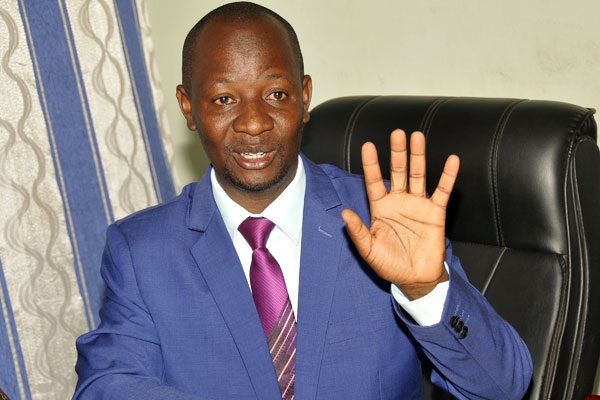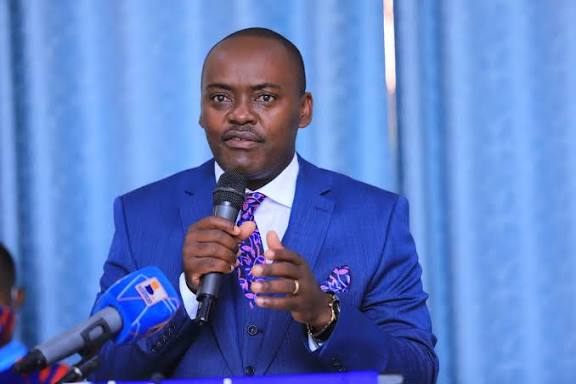By Ofwono Opondo
Next week marks one year since President Yoweri Museveni established the Anti-Corruption Unit (ACU) under State House as a direct link to him and additional efforts in the fight against widespread, but neglected reports of corruption within government.
On Thursday President Museveni will lead senior government officials and the public in a match from the Constitutional Square to Independence Grounds at Kololo to further raise awareness during the anti-corruption week on the dangers and various measures government is undertaking to consolidate the fight against corruption, ensure culprits are appropriately punished and where possible stolen public resources are recovered.
In 2013 pension scam suspects at Ministry of Public Service led by former Permanent Secretary Jimmy Lwamafa, and Senior Accountant Christopher Obey were arrested, charged and serving long jail sentences. Lwamafa and his cohorts join Geoffrey Kazinda of the 2010 scam in the Prime minister’s Office. The setback in the Kazinda case is that he has the only one convicted in court, leaving the impression that he was a lone wolf in the massive theft yet investigations pointed out that there were syndicates within government working with the private sector to cheat.
To deal the corrupt a decisive blow, whistle-blowers, investigators, prosecutors and the judiciary must break these syndicates that appear to enjoy insider knowledge and protection. With the establishment of a national CCTV network, government should gradually rollout e-government services and installation of cameras in public offices.
To give a kick-start, traffic police, revenue and immigration officers in the field should wear body cameras. It may now be necessary to have law enforcements agencies working with local authorities to identify properties of public officials. The officials should then be administratively tasked to account for the sources of their wealth.
In 2016, the hitherto ‘untouchable’ Sarah Kulata Basangwa, the long serving Commissioner Land Registration in the Ministry of Lands, Physical Planning and Urban Development was finally fell down.
It was so embarrassing at the time, that between 2011 and 13 of the forty-four complaints the IGG had received about the Lands Ministry, a whooping twenty were against Kulata and yet no action could be taken. Land registration and valuation at the ministry, Uganda Land Commission, and District Land Boards were tainted with fraud, discrediting land titles as financial instruments, and therefore undermining socio-economic transformation.
The cancellation of land title on plot 139 (2,500 hectares) of Block 2 in Ngenge sub-county Kween district that year by Lands minister, Betty Amongi, due to fraud sent a powerful signal. The purported owners included MP Lawrence Cherop Mongusho, and Kapchorwa District Land Board Chairman Saul Diisi, who had obtained it 2013.
During the Judicial Commission of inquiry into the Uganda National Roads Authority (UNRA) and Lands Ministry, more rot through systematic connivance between public officials and private sector players have been exposed. The various parliamentary probes have been slowly nailing the coffins by at least publicly shaming those named. Apart from the recovery of monies diverted, these persons and business entities should be blacklisted from government contracts.
Someone once said that corruption is as old as the first sin written in the bible, which many say is prostitution. In Uganda even prior to independence in 1962, corruption especially among the elites who controlled public resources was widespread. It partly explains the origin of the wealth many gentry families control to-date, although much, especially land, is lying in waste because the descendants of the looters haven’t expanded its value in relation to modern economy.
During the immediate post-independence Uganda, on account of widespread ignorance among the citizens, top-down rigid state bureaucracy and regulations, and brazen dictatorship, it was taken as normal for public officials to exploit their positions for private gain. Since then, to the advent of the National Resistance Movement (NRM) in 1986, official corruption was the norm and went unabated.
Where Uganda currently stands, even a whiff of corruption should cause indignation, and enough reason for a throw up and eviction of those named because the system has either been lenient or manipulated for long. Among many measures, it has been gratifying seeing construction firms being forced to refund to the public coffers monies fraudulently spent.
While laws and civil service regulations are meant to protect public servants from witch-hunt, and persecution, the circus going on in many government departments leaves no doubt that the rules are being exploited to defeat justice. Often, the long and winding procedures are used to circumvent disciplinary actions from being taken.
Otherwise, the establishment of the ACU under Lt. Col. Edith Nakalema has given the corruption fight a new dimension and momentum because in its short spell 96 public officials have been arrested, charged before courts, interdicted, and in some cases convictions secured and stolen money recovered. In the Uganda Gaming and Lottery Board alone, close to one billion was returned by a hotel that had claimed fictious hospitality. The ACU has mainly acted upon tip offs, quick response and effective coordination and follow-up with other agencies especially a specialized police unit, DPP, Auditor General, IGG, and a willing public.
Do you have a story in your community or an opinion to share with us: Email us at Submit an Article





